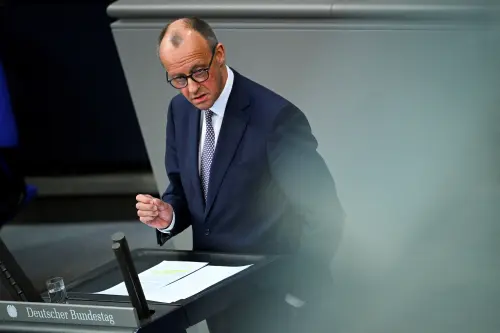Working groups for Germany's center-left Social Democrats will submit findings on a potential coalition, marking progress toward forming a government and addressing issues such as migration.
Chancellor-in-waiting Friedrich Merz aims to establish a ruling coalition with the SPD by April 20, although both parties have emphasized the importance of substantive discussions over adhering to tight deadlines.
Recent approval from the outgoing parliament for a substantial state initiative aimed at revitalizing economic growth in Europe’s largest economy and strengthening its military has provided encouragement for both parties.
The conservatives and the SPD are likely to be the only viable coalition options in the new parliament, which starts its term soon. However, significant differences remain, mostly being addressed in private negotiations.
The SPD has expressed skepticism regarding Merz's proposals for stricter migration controls, including measures to turn away asylum seekers at the border. Conversely, the conservatives are keen on reforming welfare payments and identifying budget savings, yet the SPD has concerns about the extent of these changes.
"I assume that everyone will want to continue working with concentration, but we also don't want to put ourselves under time pressure," said SPD General Secretary Matthias Miersch.
Following last month's elections, Merz has advocated for a swift coalition formation, cautioning that it is "five minutes to midnight" for Europe to safeguard itself against threats from a hostile Russia and an unreliable U.S.
Merz's tougher stance on migration reflects a shifting political climate, as the far-right Alternative for Germany (AfD) has gained traction, becoming the country’s second-largest party.
The AfD's rise is underscored by a recent INSA poll showing their support increasing by one percentage point to 23%, while the bloc of Christian Democrats and Christian Social Union (CDU/CSU) saw a decline to 27%.
Additionally, the poll revealed that nearly three-quarters of traditionally frugal Germans, including 44% of CDU/CSU supporters, feel misled by Merz's borrowing proposals.
Historically, the CDU/CSU has positioned itself as a steward of financial discipline, warning against excessive spending during the election cycle, only for Merz to reveal substantial borrowing plans after his victory on February 23.
